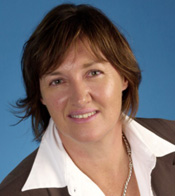Summary
Definition
History and exam
Key diagnostic factors
- gestation <37 weeks
- low height, weight, head circumference
- characteristic facial dysmorphology
- presence of birth defects
- developmental delay and behavioral problems
- mental health problems
- sibling with similar symptoms
Other diagnostic factors
- hearing or vision impairment
- poor feeding
- irritability
Risk factors
- maternal alcohol intake during pregnancy
- current maternal alcohol intake
- higher parity/gravidity
- higher birth order of child
- maternal ADH1B*1/ADH1B*3 or ADH1B*1/ADH1B*1 genotype
- longer history of maternal alcohol consumption
- increasing maternal age
- decreased maternal weight, height, and head circumference
- maternal tobacco use during pregnancy
- low maternal socioeconomic status
- maternal family history of alcohol consumption
- maternal Indigenous ethnicity
Diagnostic tests
1st tests to order
- facial photographic assessment
Tests to consider
- prenatal ultrasonography of fetus
- ECG
- echocardiogram
- EEG
- MRI/CT head
- renal ultrasonography
- skeletal x-ray
- screening blood tests
- chromosome microarray
Emerging tests
- functional MRI
- magnetic resonance spectroscopy
- 3-dimensional facial imaging
Treatment algorithm
all patients
Contributors
Authors
Elizabeth Elliott, MD, MPhil, MBBS, FRACP, FRCPCH, FRCP

Professor of Paediatrics and Child Health
Faculty of Medicine and Health
University of Sydney
Consultant Paediatrician
The Children's Hospital at Westmead
Sydney
Director
Australian Paediatric Surveillance Unit
Head, New South Wales Fetal Alcohol Spectrum Disorder Assessment Servicer
Westmead
Australia
Disclosures
EE is an author of a number of references cited in this monograph but has no other competing interests.
Acknowledgements
Professor Elizabeth Elliott would like to gratefully acknowledge Dr Elizabeth Peadon, a previous contributor to this monograph. EP is an author of a number of references cited in this monograph.
Peer reviewers
Albert E. Chudley, MD, FRCPC, FCCMG
Medical Director
Program in Genetics and Metabolism
Professor
Department of Pediatrics and Child Health
University of Manitoba
Winnipeg
Canada
Disclosures
AEC has been paid an honorarium and consulting fees for the development of screening tools for identifying individuals at risk for FASD in Canada. AEC is an author of a number of references cited in this monograph.
Carol Bower, MD
Clinical Professor
Senior Principal Research Fellow
Telethon Institute for Child Health Research
Centre for Child Health Research
The University of Western Australia
Perth
Australia
Disclosures
CB is an author of a number of references cited in this monograph, and sometimes collaborates with the authors.
Philip A. May, MD, PhD
Professor of Sociology
Professor of Family and Community Medicine
The University of New Mexico
Albuquerque
NM
Disclosures
PAM is an author of a number of references cited in this monograph.
Deborah Badawi, MD
Assistant Professor of Pediatrics
Division Head, Developmental-Behavioral Pediatrics
University of Maryland School of Medicine
Baltimore
MD
Disclosures
DB declared no competing interests.
Peer reviewer acknowledgements
BMJ Best Practice topics are updated on a rolling basis in line with developments in evidence and guidance. The peer reviewers listed here have reviewed the content at least once during the history of the topic.
Disclosures
Peer reviewer affiliations and disclosures pertain to the time of the review.
References
Key articles
Jones KL, Smith DW. Recognition of the fetal alcohol syndrome in early infancy. Lancet. 1973 Nov 3;302(7836):999-1001. Abstract
Carson G, Cox LV, Crane J, et al.; Society of Obstetricians and Gynaecologists of Canada. Alcohol use and pregnancy consensus clinical guidelines. J Obstet Gynaecol Can. 2010 Aug;32(8 suppl 3):S1-31. Abstract
Astley SJ. Diagnostic guide for fetal alcohol spectrum disorders: the 4-digit diagnostic code. 3rd ed. Seattle, WA: University of Washington; 2004.Full text
Cook JL, Green CR, Lilley CM, et al. Fetal alcohol spectrum disorder: a guideline for diagnosis across the lifespan. CMAJ. 2016 Feb 16;188(3):191-7.Full text Abstract
Streissguth AP, Bookstein FL, Barr HM, et al. Risk factors for adverse life outcomes in fetal alcohol syndrome and fetal alcohol effects. J Dev Behav Pediatr. 2004 Aug;25(4):228-38. Abstract
Koren G, Sarkar M, Rosenbaum C, et al. The maternal drinking history guide: development of a national educational tool. J Popul Ther Clin Pharmacol. 2013;20(1):e42-3. Abstract
Sarkar M, Burnett M, Carriere S, et al. Screening and recording of alcohol use among women of child-bearing age and pregnant women. Can J Clin Pharmacol. 2009 Winter;16(1):e242-63. Abstract
Reference articles
A full list of sources referenced in this topic is available to users with access to all of BMJ Best Practice.
Differentials
- Fetal hydantoin syndrome
- Fetal valproate syndrome
- Toluene embryopathy
More DifferentialsGuidelines
- Fetal alcohol spectrum disorders
- Children and young people exposed prenatally to alcohol: a national clinical guideline
More GuidelinesPatient information
ADHD: what is it?
Fetal alcohol spectrum disorders: what is it?
More Patient informationLog in or subscribe to access all of BMJ Best Practice
Use of this content is subject to our disclaimer